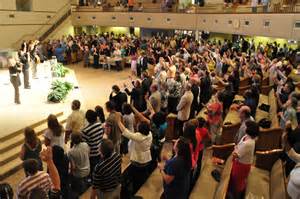
How do you respond to God’s Word? We know we should be reading it, meditating on it, and memorizing it, but what should our attitude be toward it? James, in his “down home” letter to Jews scattered throughout the world, gives us some guidance.
James writes:
Know this, my beloved brothers: let every person be quick to hear, slow to speak, slow to anger; for the anger of man does not produce the righteousness of God. Therefore put away all filthiness and rampant wickedness and receive with meekness the implanted word, which is able to save your souls.
But be doers of the word, and not hearers only, deceiving yourselves. For if anyone is a hearer of the word and not a doer, he is like a man who looks intently at his natural face in a mirror. For he looks at himself and goes away and at once forgets what he was like. But the one who looks into the perfect law, the law of liberty, and perseveres, being no hearer who forgets but a doer who acts, he will be blessed in his doing (James 1:19-25).
James mentions three ways we should respond to God’s Word.
1. Our first response to God’s Word must be one of attentiveness.
Have you ever been in a conversation where you really weren’t listening? True, you were nodding and making eye contact and the words spoken were being heard, but nothing being spoken was registering in your brain.
James urges his readers to approach God’s Word with an ear to hear. He wants it to capture our attention.
James also writes some warnings in regards to being attentive. He tells his readers to be “slow to speak” and “slow to anger.” It is easy to understand why he would write to be “slow to speak” as one who talks all the time most likely doesn’t listen well. But what about “slow to anger?” Well, have you ever tried to talk with an angry person? They are not really in the listening mood, are they?
2. Our second response to God’s word must be one of reception.
Remember the parable of the soils in Mark 4? In each soil, the seed was received, or so it appeared. It was only as the seeds began to grow that we witness which seed was fully received as the seed in the fertile soil grew and bore fruit.
What James is encouraging here is for us to continue to expose ourselves to the Word in order for it to grow and produce fruit. Though it is true that we must examine God’s Word, we must also allow for it to examine us.
James desires the Word to be received in a heart and life that will produce fruit. Therefore he writes that we must “put away all filthiness and rampant wickedness” and put on “humility.
There are things that creep in our lives that hinder our spiritual growth and reception of God’s Word. These sins must continually be pulled up by the roots. As the Puritan John Owen writes, we must “be killing sin or it will be killing us.”
As we battle sin, we must remember that the battle is not one in which we will lose. The battle of the “weeds of sin” is not one which will overtake the Word that is implanted in us.
Though James is straightforward with how tiring the battle might be, he is also trusting that as we approach and receive the Word with “humility,” that it will “save your souls.”
We must not overlook the the need for “humility” or “meekness” in our reception of God’s word. It is only with an attitude of humility that we can really see how needy we are. Humility produces a willingness to concede to the Word of God for our lives.
3. Our third response to God’s Word must be one of obedience.
William Barclay, in his commentary on James wrote, “That which is heard in the holy place must be lived in the market place–or there is no point in hearing at all.”
In Greek literature, the one who only hears is referred to as one who attends the lectures but never joins a group. In contemporary society, it could be compared to one who continues to takes tours of a health club, but never joins. In doing so, they only deceive themselves in thinking they are getting healthy. The same is true of one who only hears the Word and does not obey. Though one may attend Bible study after Bible study, they are only fooling themselves as real Christianity is marked by an obedient Christlike lifestyle.
As followers of Christ, we must continually persevere in God’s Word and keep it in front of us. Otherwise, we are, according to James, like the man who looks in the mirror and then leaves, forgetting what he has seen.
However, as we faithfully become attentive, receptive, and obedient to God’s Word, we will be blessed both in this life and in the life to come.







